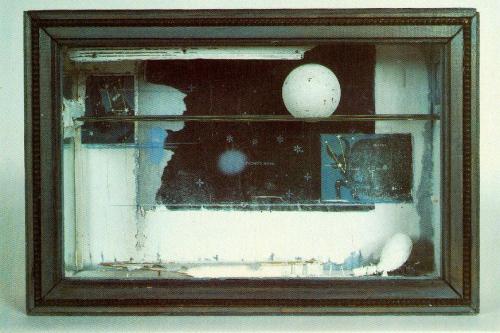I recognize that I am the odd one out here. They must work for most people because they remain the primary model, but I just don't get it. Give me Grief Fest any day: I can see and sense and intuit how change is being effected there. But as comfortable as I am in that paradigm, most people seem comfortable in this one. C'est la vie. (It reminds me of my first lecture class at Oberlin after a year at The Evergreen State College, where seminar was used as a verb. I was dumb-founded when I entered a lecture hall and fifty students all opened their notebooks at the same time the professor opened his and proceeded to write down in their books whatever he read out of his book. I nearly laughed out loud. Why not just loan us his book and be done with it? But it was not long before I heard some brilliant lecturers at Oberlin and I found that thrilling. Having someone with so much knowledge at their fingertips seeming to think out loud, on their feet, making new and stirring connections right in front of you, well, no surprise I would find that thrilling, I suppose. Even now the word I reach for to describe it is sexy-- okay, yeah, I am a freak of nature, sue me....)
Meanwhile, back at the Convention Center: I line up (alphabetically by last name like at the old polling centers) to sign in, get a-- whachamacallit? lanyard! bright neon pink, naturally -- with my name, title ("Survivor"), and the sessions I am to attend printed on the attached laminated card, a multipage plastic-covered and bound "program", and a card redeemable for my lunch. ("Vegetarian Salad" which seems a bit redundant to me, but hey, at this point, what don't? Do I smell a committee at work here?) I am directed to enjoy free coffee and tea in the Exhibit Center before the Keynote Speaker kicks things off in the main auditorium.
Okay! I step into what feel like the midway of a fairground. BOOTHS! Of course, there are booths! Largely manned by employees of companies with something to market to breast cancer patients-- wigs, post-op brassieres, plastic surgery, hospitals, surgical centers-- even a bank! (I guess that where you spend you cancer dollars matters...) All these "professional" booths are colorful, 3-D, stocked with pink ribbon tchotchkes to give away and raffles to sign up for in order to win more free goods. Ah, consumerism! True life-blood of the Conference paradigm! Thanks, Starbucks for the free coffee, here is your plug on my tiny trickle of a web-site.
In this melee of pink, three booths caught my attention:
The first was called Matt's Chemo Care Bags. Manned by Matt himself, a handsome and well-spoken 18-year-old who got the idea of giving away these "care bags"-- a soft blankie, cosy socks and hat, lotions, and so forth-- two years ago when he saw how much his own mom was comforted by a similar gift she received during her chemotherapy. Now he has a registered 501.3c and gets funding to give these away to other woman under going treatment. Two years ago he was 16, ladies and gentlemen. Imagine that. And now he is devoting his Saturday to this room full of middle-aged women wearing headscarves. (Well, he admits, his sister is coming in this afternoon to spell him. He's the catcher and DH on his baseball team...) You are one remarkable young man, I tell him, but I bet you hear that a lot. Yeah, I get that... he says, his head hanging down.
Next up, a booth called Rachel's Friends. Never heard of them. I was attracted by its lack of shiny pink things. Then I saw what it was all about: Rachel Carson, famous for the first anti-DDT book Silent Spring (oooh, my dad, like most farmers I knew, hated her!) died of breast cancer. I did not know that. She was also a crusader for research into the environmental causes of cancer. I was so happy to see that point of view at the table at a Komen-sponsored event. I have done my fair share of Racing for the Cure and have been troubled by all the chemical companies decked out in pink as major corporate sponsors. Gee, you have a stake in creating commonly used chemicals which -- as Kathy Griffen would say -- allegedly contribute to causing cancer, AND you make the pricey chemotherapy drugs used to treat it as well--- Uh, do you really have a horse in this race?
I happily slapped down a dollar (and my coveted email address) in return for the best bumper sticker I have seen in sometime:
You Can Race for the Cure, but You Can't Run from the Cause(Which is even better when you know that the right-leaning Komen Foundation has threatened to go to court to keep other cancer-fighting organizations from butting in on their exclusive rights to the phrase "Race for the Cure". How philanthropic is that?)
The third booth I visited was a bare white table with three books on top and a single woman behind it. I told her I came over because she looked lonely. She said, thanks. Then I said, no really I also came over because I've been to A Woman's Time, the naturopathic clinic she represented. They specialize in women's health, and with breast cancer. I sought their guidance during my second round with cancer and they helped me prepare for and endure the onslaught of chemo and radiation. I am grateful they were there for me, grateful they still exist, grateful they would show up here, and I just wanted to let them know that. She appreciated my saying so. When I walked away she was all alone again. But the booth where you could sign up to win a free lacy push-up mastectomy bra was packed.
Next up: The Speakers! When Cancer Fair Continues....




